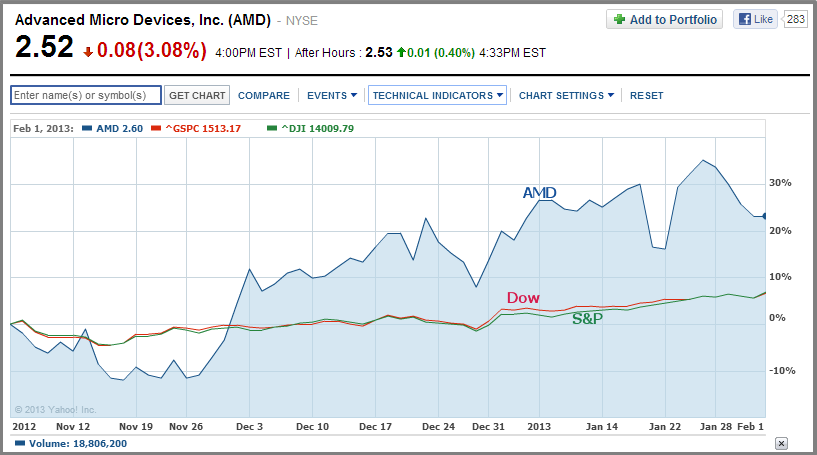BlackBerry, the smartphone from Research in Motion (RIM), was once-loved by diehard fans and even referred to as “CrackBerry” for its addictive nature. For the last several years, though, RIM has made some poor business decisions. Since the company has fallen behind its competition, many analysts do not foresee a swift recovery in the future for its stock.
This year, RIM’s stock underperformed the Dow Jones Industrial Average by nearly 75%. It has seen a significant increase in price over the last few months, but analysts from Morgan Stanley do not believe this is sustainable in the long run. The stock price sat at $8.49 one month ago, and it hovers around $13.92 today. This 64% increase is incredible, but can Research in Motion maintain this rapid climb?
Research in Motion has been losing market share for the last few years. In addition to a poor management team, the company failed to improve its core products. Competitors like iOS and Android have left BlackBerry in the dust when it comes to application stores and updates. While other smartphones innovated, BlackBerry did not actively work to enhance its operating platform.
[related1][/related1]
The latest smartphone, the BlackBerry 10, is set to launch at the end of January. Research in Motion is depending heavily on this product’s sales as part of its financial recovery. Although the BlackBerry 10 will include games, social platforms, multimedia, and productivity applications, many people think the brand lacks a “cool” factor. The likelihood that the BlackBerry 10 will finish in third place is very low. Competitors such as Apple, Android and Windows are likely to dominate the smartphone arena. BlackBerry and Research in Motion will not be able to overcome this competition in the marketplace.
[newsletter1][/newsletter1]
At a recent BlackBerry press conference, CEO Thorsten Heins said, “We have a clear shot at being the number 3 platform in the market.” Heins might want to check the competitive landscape again. Android currently holds the majority market share at 64%. Unlike iOS and BlackBerry, Android is not limited to one mobile phone manufacturer. HTC, Motorola, and Samsung, all of which manufacture phones with the Android operating system, have been stealing RIM’s customers for several years. Following Android, Apple’s iOS has 19% of the market, and Symbian holds 5.9%. RIM held 18% of the world’s smartphone market in November 2011, but it only captured 5.2% of the market in the second quarter of this year. If Android, iOS, and Symbian continue to grow as they have been, RIM is unlikely to be the number 3 platform in the market.
Some analysts encourage investors to prepare for a financial reversal at RIM, but I’m not so convinced. While the company has been working to persuade corporations and government agencies to switch to the new smartphone, its products have not dominated in the United States in years. They continue to draw attention in the international scope, however, so I would recommend that Research in Motion concentrate its focus on developing regions so as to boost its worldwide presence. Maybe then it can return to profitability and a top spot in the global marketplace.
[related2][/related2]







